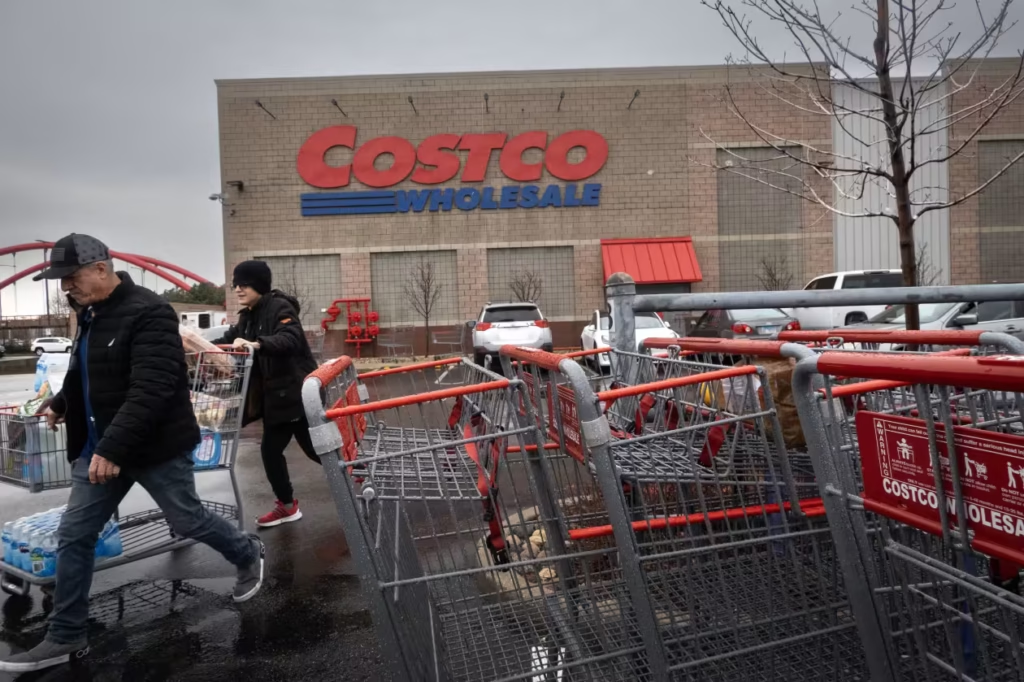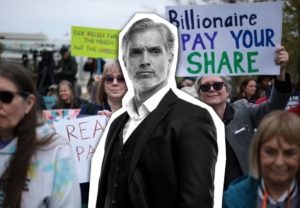According to some analysts, firms might effectively quit attempting to predict consumer demand due to the unpredictable nature of President Donald Trump’s tariff and trade measures. Instead, they could remove their financial forecasts.
Few of them have, however, done so thus far.
According to a FactSet analysis on Friday that focused on companies that reported first-quarter results through May 22, only eight of the 259 S&P 500 companies that have provided commentary on their profit outlook for the year have stated that they would withdraw or otherwise postpone updating their full-year earnings-per-share forecasts. According to FactSet, six of the eight mentioned “uncertainty” that was either directly or indirectly associated with the tariffs.
The discount retailer Ross Stores Inc. and Deckers Outdoor Corp., the manufacturer of Hokas and Uggs, were two of those businesses. The effects of the trade war on prices and consumer behavior may be most noticeable for retailers like those.
Jim Conroy, the CEO of Ross Stores Inc. (ROST), stated in a statement last week that “heightened macroeconomic and geopolitical uncertainty persists, most notably prolonged inflation and evolving trade policies.” Last week, Deckers Outdoor Corp. (DECK) likewise mentioned “macroeconomic uncertainty related to evolving global trade policies.”
When the big-box retailer reports on Thursday, officials at Costco Wholesale Corp. (COST) are expected to comment on that topic as well as on consumer demand in general.
Costco will release those findings as consumers of all income levels look for deals, and analysts claim that the largest stores are best positioned to grow as consumers battle with price rises. Costco’s “all-weather type characteristics” would offer it an advantage over most other retailers in the current environment, according to a research note written by UBS analyst Michael Lasser last week.
“Plus, its business model, low exposure to imports and merchandising strategy should minimize any impact from tariffs,” he stated.
“Keep in mind that the typical Costco carries around 3,800 items,” he said. “With just a 10%–15% markup, it can easily decide to drop a product that it cannot sell at a competitive price. It can quickly replace produce because of its agility, especially given that it rotates its inventory 12–13 times annually.
Trump responded strongly when Walmart Inc. (WMT) and other mass merchants said this month that they would have to hike prices in reaction to Trump’s tariffs. In contrast, Target Corp. (TGT) stated that price hikes were a last choice.
Following an agreement to merge, Dick’s Sporting Goods Inc. (DKS) and Foot Locker Inc. (FL) report during the week. Kohl’s Corp. (KSS) and Macy’s Inc. (M) also report, with the latter dealing with the dismissal of its CEO and the former attempting to turn itself around.
The following companies are also expected to provide results: American Eagle Outfitters Inc. (AEO), Ulta Beauty Inc. (ULTA), Burlington Stores Inc. (BURL), Best Buy Co. (BBY), Abercrombie & Fitch Co. (ANF), and Bath & Body Works Inc. (BBWI).
The call that you should schedule
Nvidia: As big tech invests billions of dollars in development and concerns about an AI bubble persist, Wall Street will be preoccupied with the company’s capacity to match the demand for AI when the biggest manufacturer of AI chips, Nvidia Corp., releases its first-quarter results on Wednesday. However, some experts predict that investors will be keeping an eye out for information on what else Nvidia may do to make up for potentially billions of dollars in missed sales after the U.S. imposed tight export restrictions on the company’s (NVDA) H20 AI processors last month, essentially stopping supplies to China.
Wedbush analysts stated in a research note on Thursday that “we think the main question around results and guidance is can [Nvidia] lift sales enough to offset the loss of H20/China business.”
The number to keep an eye on
The effect of agentic AI on Salesforce’s sales: Salesforce Inc. (CRM), a platform for customer service and workplace management, presented a daring long-term vision for its AI “agents,” which collaborate with humans on tasks, in February. However, it also stated that this year’s sales boost from that technology would be modest, and Wall Street was underwhelmed by its full-year prediction. When the business releases its results on Wednesday, it will have another opportunity to make an investor case.





